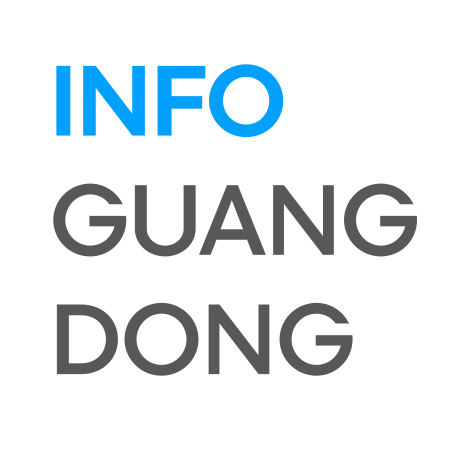From July 6 to 9, Guangdong welcomed a group of special guests: Nauru's President David Adeang, along with his family and government delegation.
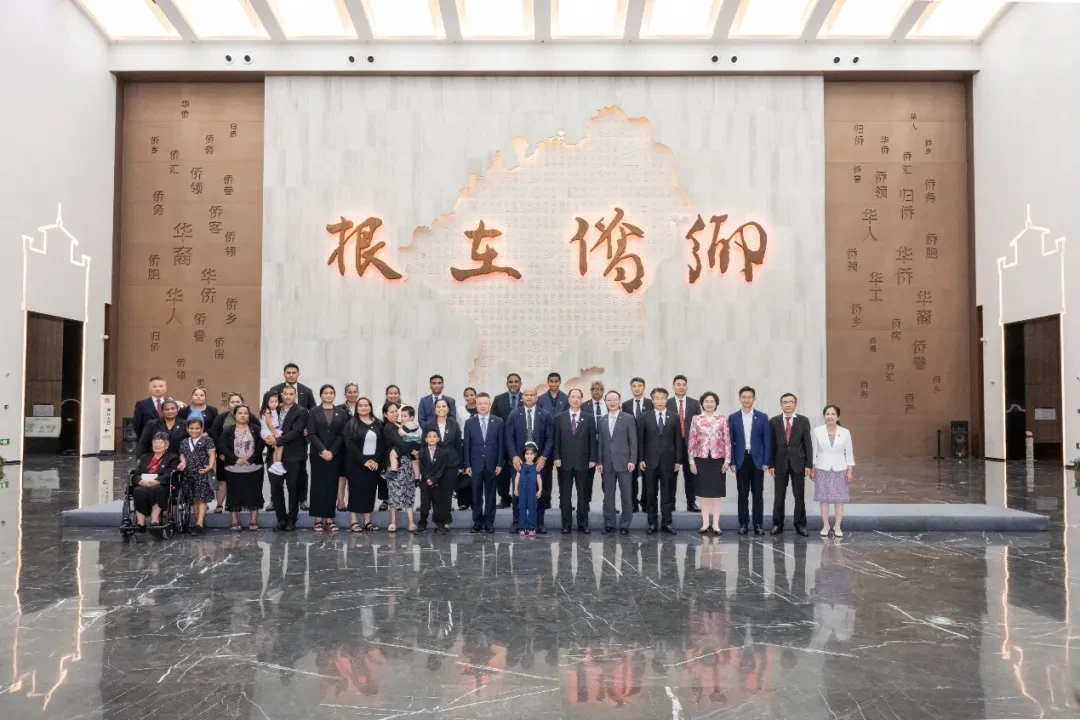
David Adeang in Jiangmen (Photo: Zhou Huadong)
Though separated by vast oceans, the world's smallest island nation shares deep-rooted ties with Jiangmen. Currently, around 1,000 overseas Chinese and ethnic Chinese live in Nauru, with over 700 tracing their ancestral roots to Jiangmen.

Nauru boasts stunning tropical scenery and unique local customs.
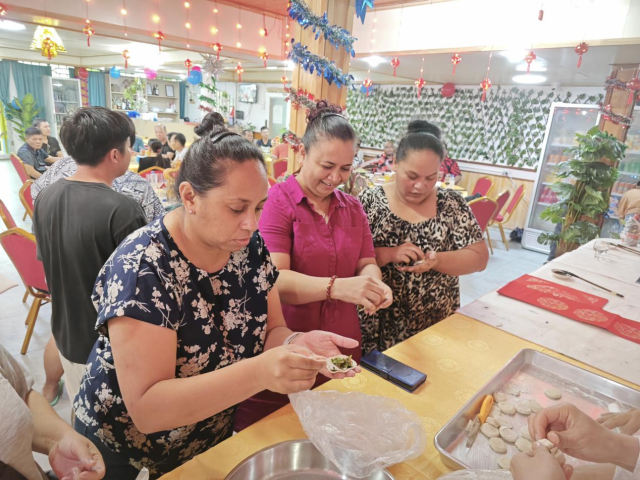
During the 2024 Chinese New Year reception hosted by the Chinese Embassy in Nauru, the Nauruan people make dumplings.
Official verification confirmed that President Adeang's great-grandfather originated from Zhongxinli Natural Village, Chikan Town, Kaiping, Jiangmen. Over a century ago, his ancestors ventured to Southeast Asia before eventually settling in Nauru.
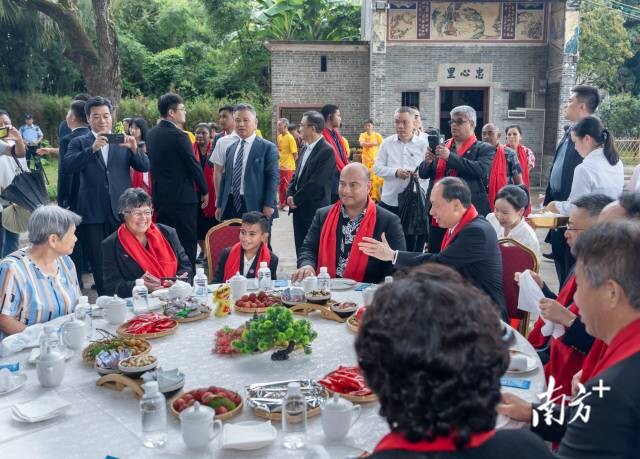
David Adeang returns to his hometown (Photo: Zhang Guanjun)
This visit was a homecoming for President Adeang. He left a message for his hometown: "This is amazing history. I've learned so much today. Thank you all. I sincerely wish my hometown eternal prosperity and happiness."
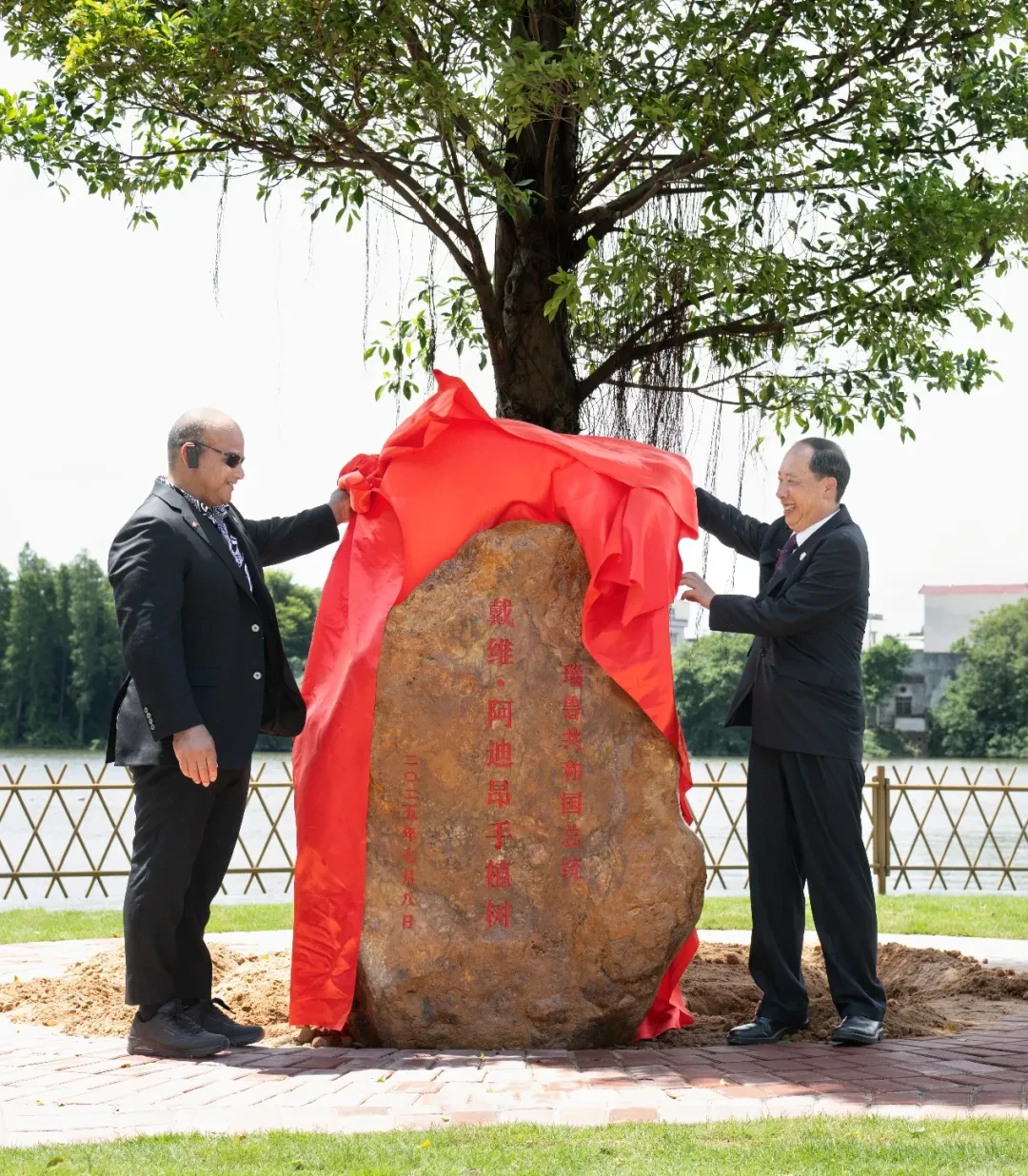
President Adeang plants a small-leaved banyan tree outside the ancestral hall (Photo: Zhou Huadong)
What amazed President Adeang? What made him feel enriched? Let's explore his ancestral home: Jiangmen, Guangdong.
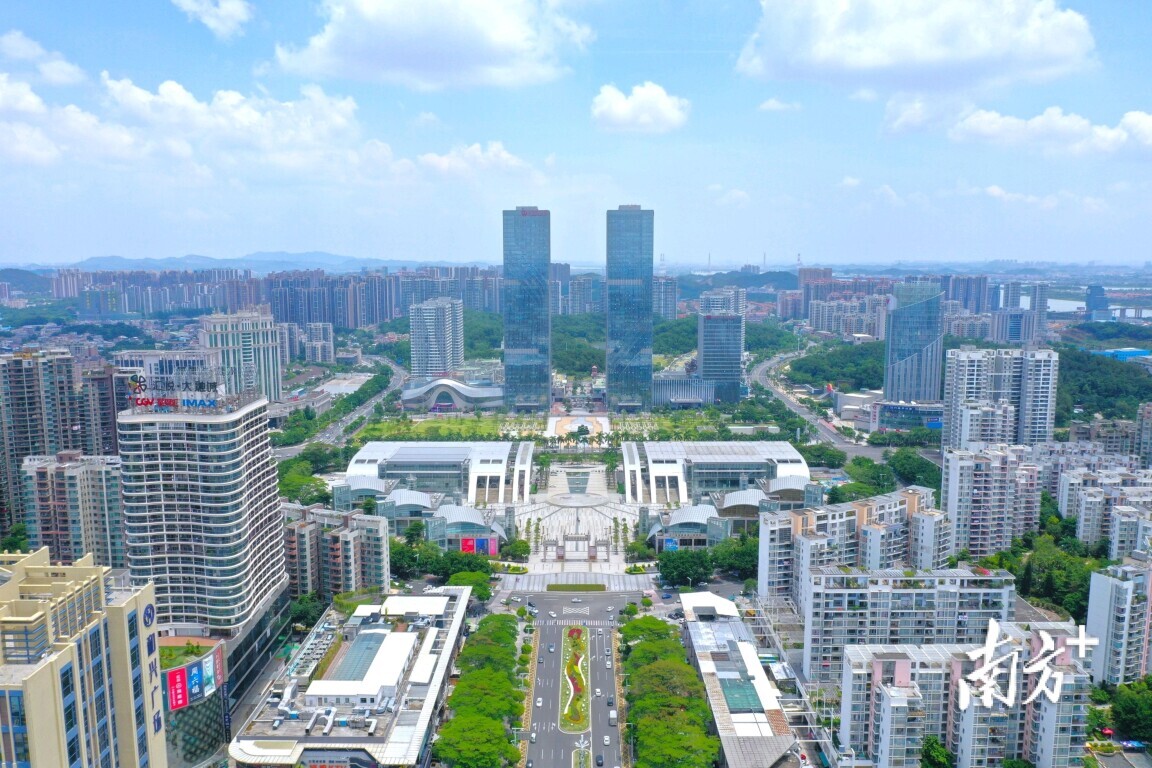
Downtown Jiangmen (Photo: Yang Xingle)
Jiangmen, a renowned historical and cultural city, was China's foremost hometown of overseas Chinese and a pivotal hub on the ancient Maritime Silk Road. It is home to Guangdong's only World Cultural Heritage site, the Kaiping Diaolou and Villages, as well as UNESCO's Memory of the World, Qiaopi.
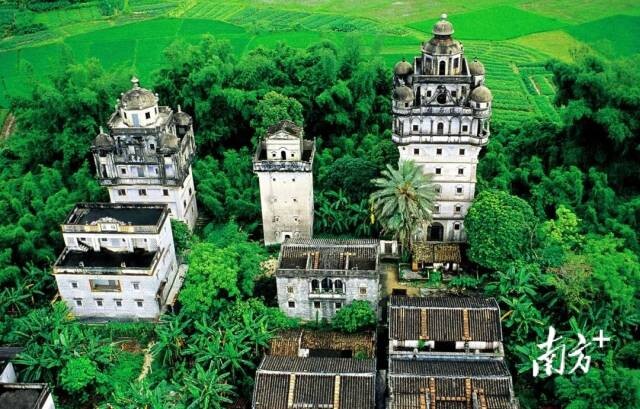
Kaiping Diaolou and Villages
Jiangmen, an influential city in modern Chinese history, has nurtured notable figures such as Liang Qichao, a pioneer of the reform movement, and Feng Ru, the Father of Chinese Aviation.
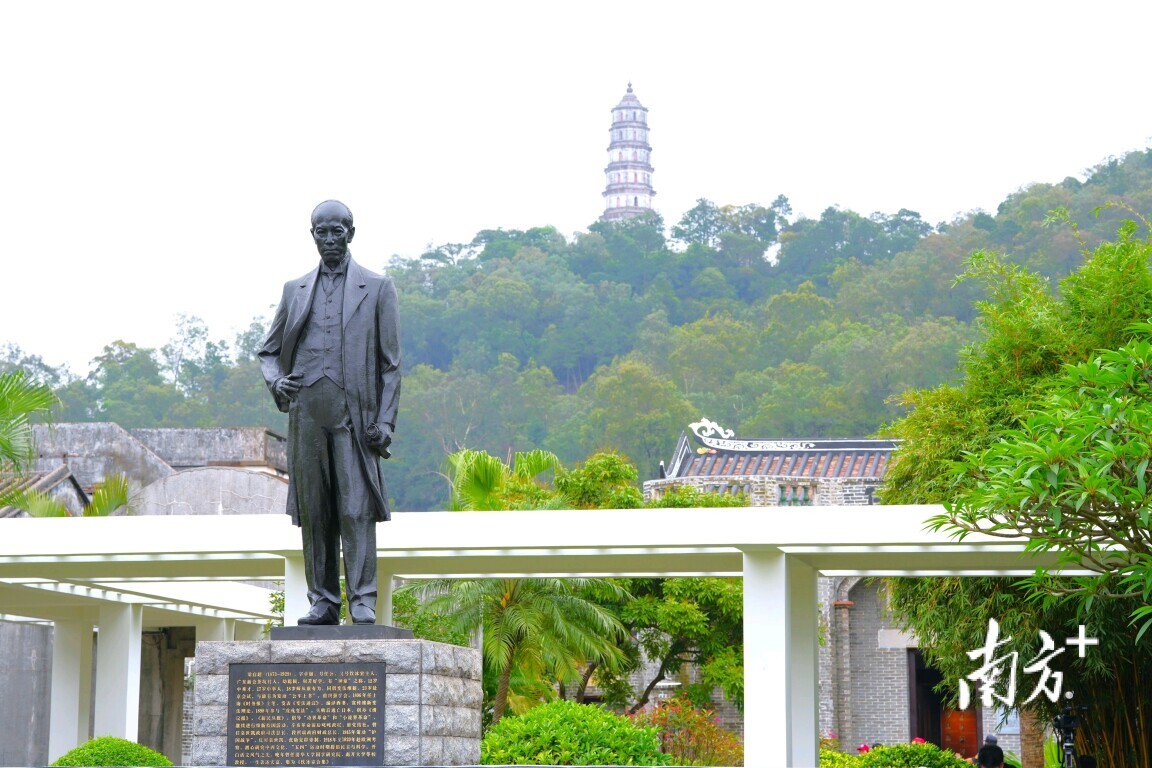
Liang Qichao's former residence in Jiangmen (Photo: Yang Xingle)
Jiangmen, an important industrial base in Guangdong, is accelerating the development of six industrial clusters worth over 100 billion yuan each, including modern agriculture and food, light industry and textiles, advanced materials, energy, electronic information, and equipment manufacturing. It is also actively developing characteristic industries such as safety and emergency response, artificial intelligence and robotics, new energy storage, low-altitude economy, and marine ranching.
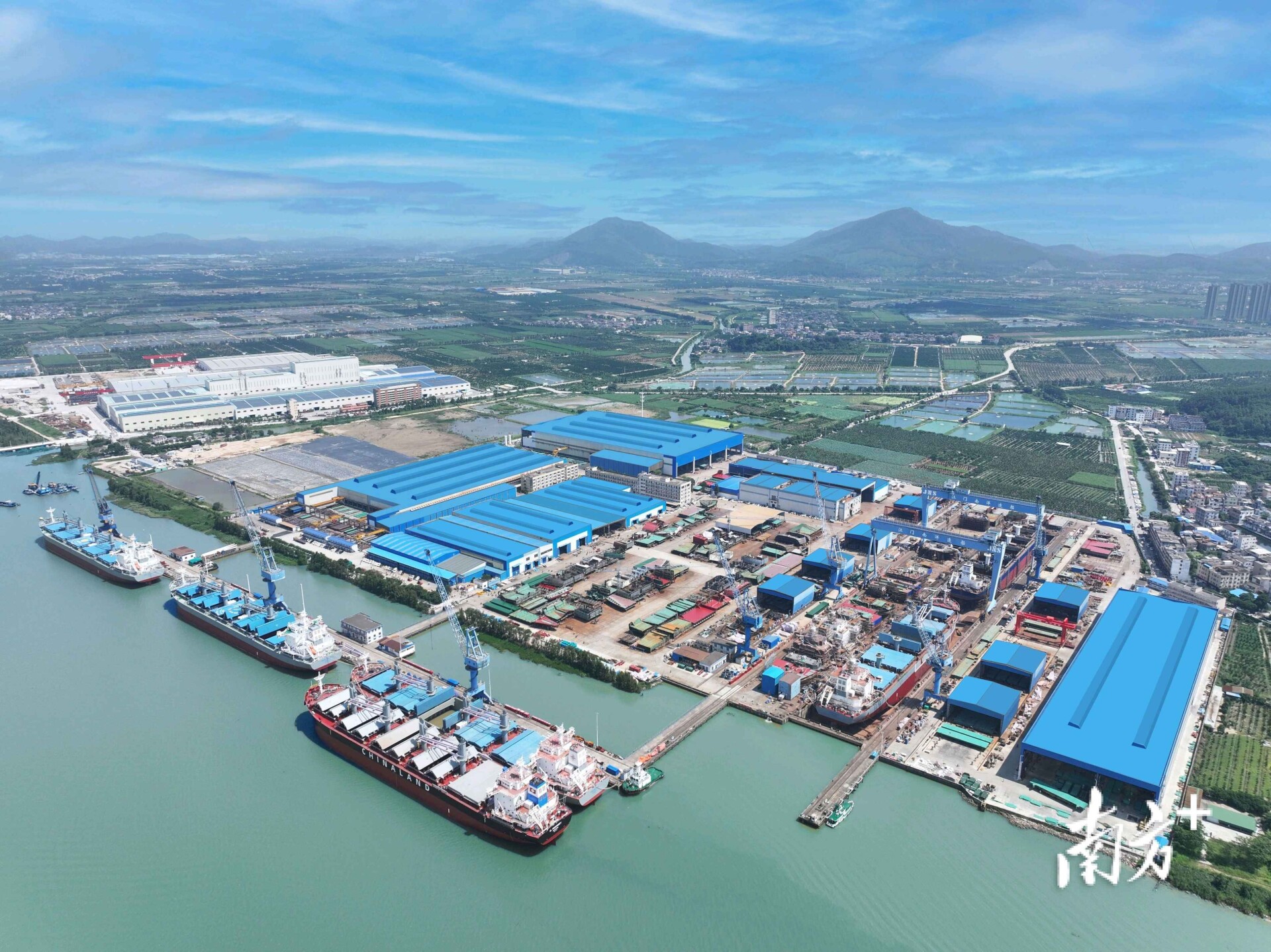
Nanyang Shipyard
Jiangmen, a renowned tourist city in China, boasts rich tourism resources, including diaolous, hot springs, islands, ecotourism, and diverse cuisine. It attracts over 20 million domestic and international tourists annually, solidifying its status as a world-class tourist destination.
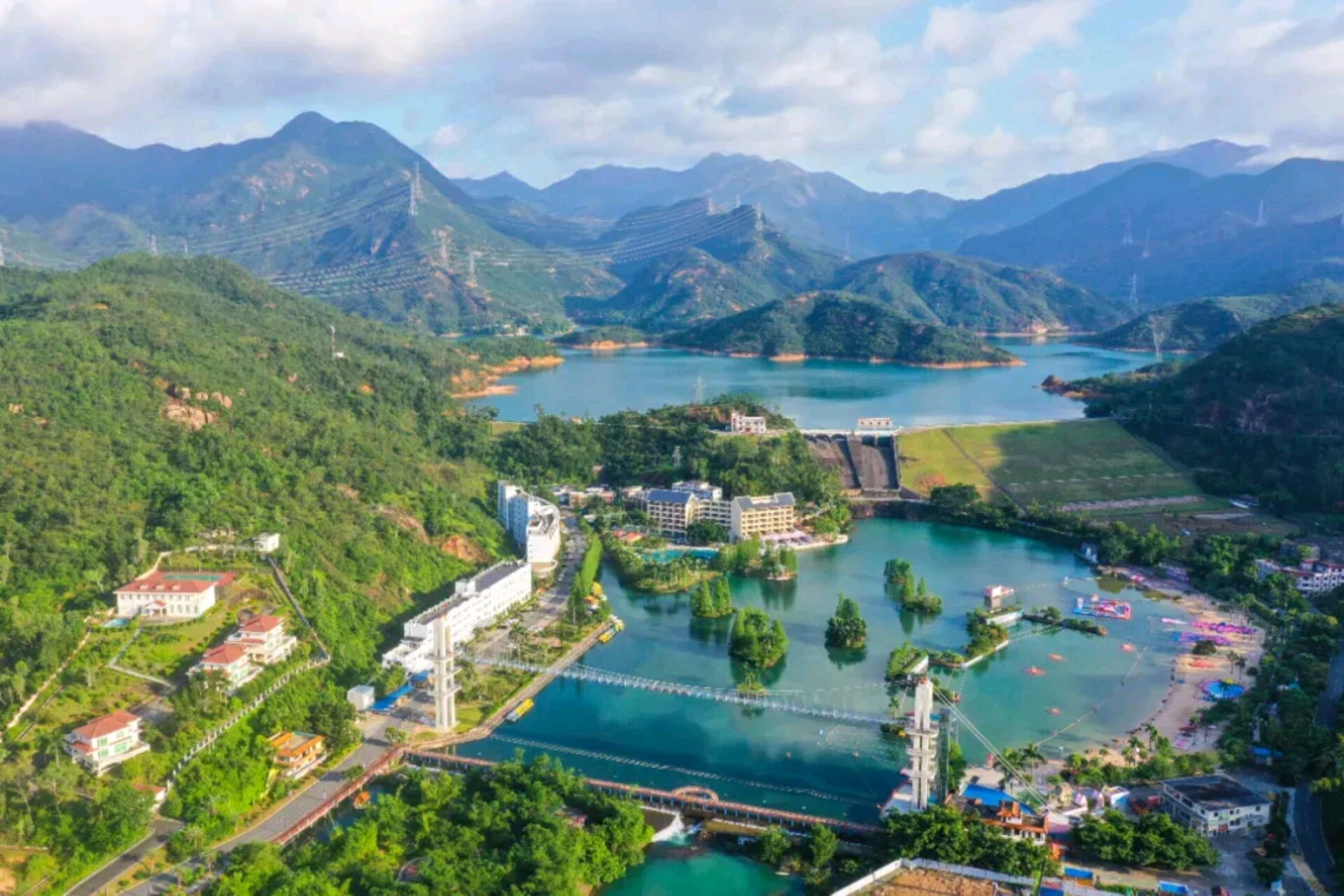
Gudou Hot Spring Resort
Jiangmen, known as "the Capital of Overseas Chinese," has over 5.3 million Jiangmen-born compatriots scattered across 145 countries and regions worldwide, primarily in Hong Kong, Macao, North America, Latin America, Southeast Asia, and the South Pacific. They wield significant influence overseas and serve as a vital link for overseas Chinese to observe Guangdong and the entirety of China.
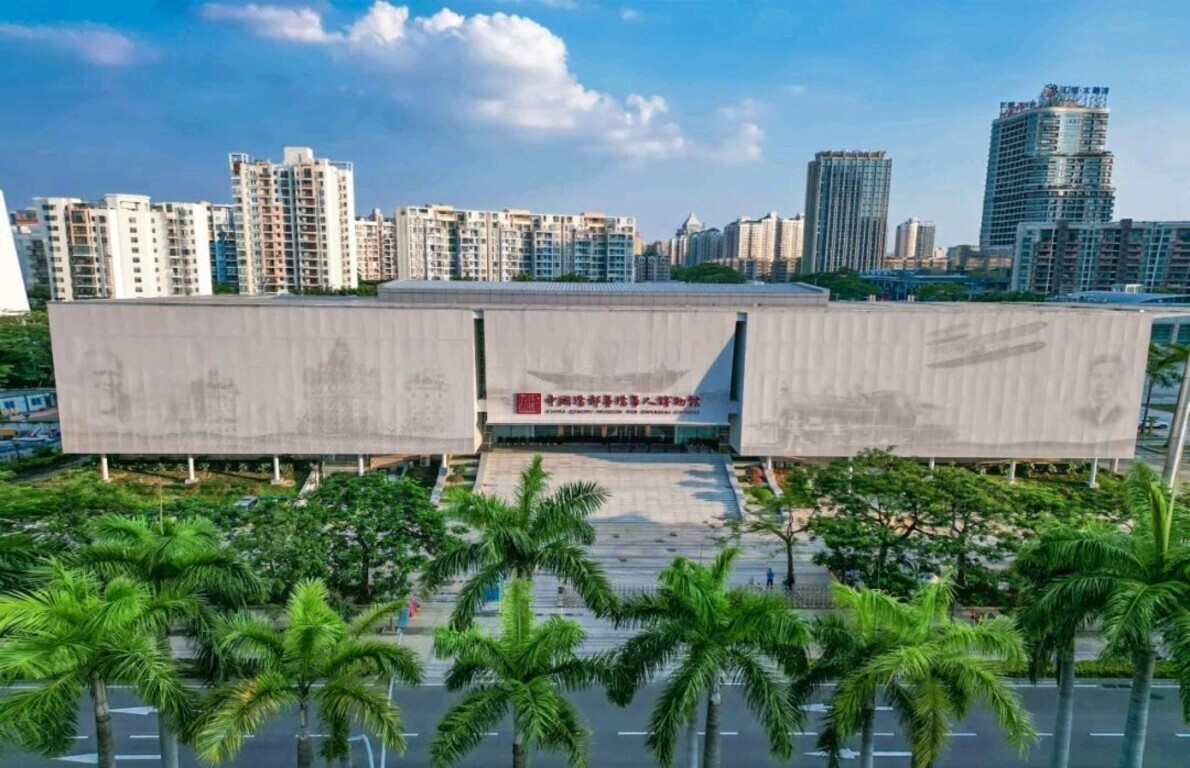
China Qiaodu Museum of Overseas Chinese in Jiangmen
The China-Pacific Island Countries Center for Disaster Risk Reduction Cooperation has been operational for two years, providing Pacific island countries with disaster risk monitoring and early warning technologies and services, post-disaster emergency supplies, and rescue support.
Last year, the 2024 Belt and Road Emergency Rescue Exercise for Pacific Island Countries was held in Jiangmen, with rescue teams from Nauru and seven other Pacific island countries participating, enhancing international cooperation in emergency rescue. Fifteen international students from Pacific island countries are currently studying disaster management expertise at Wuyi University.
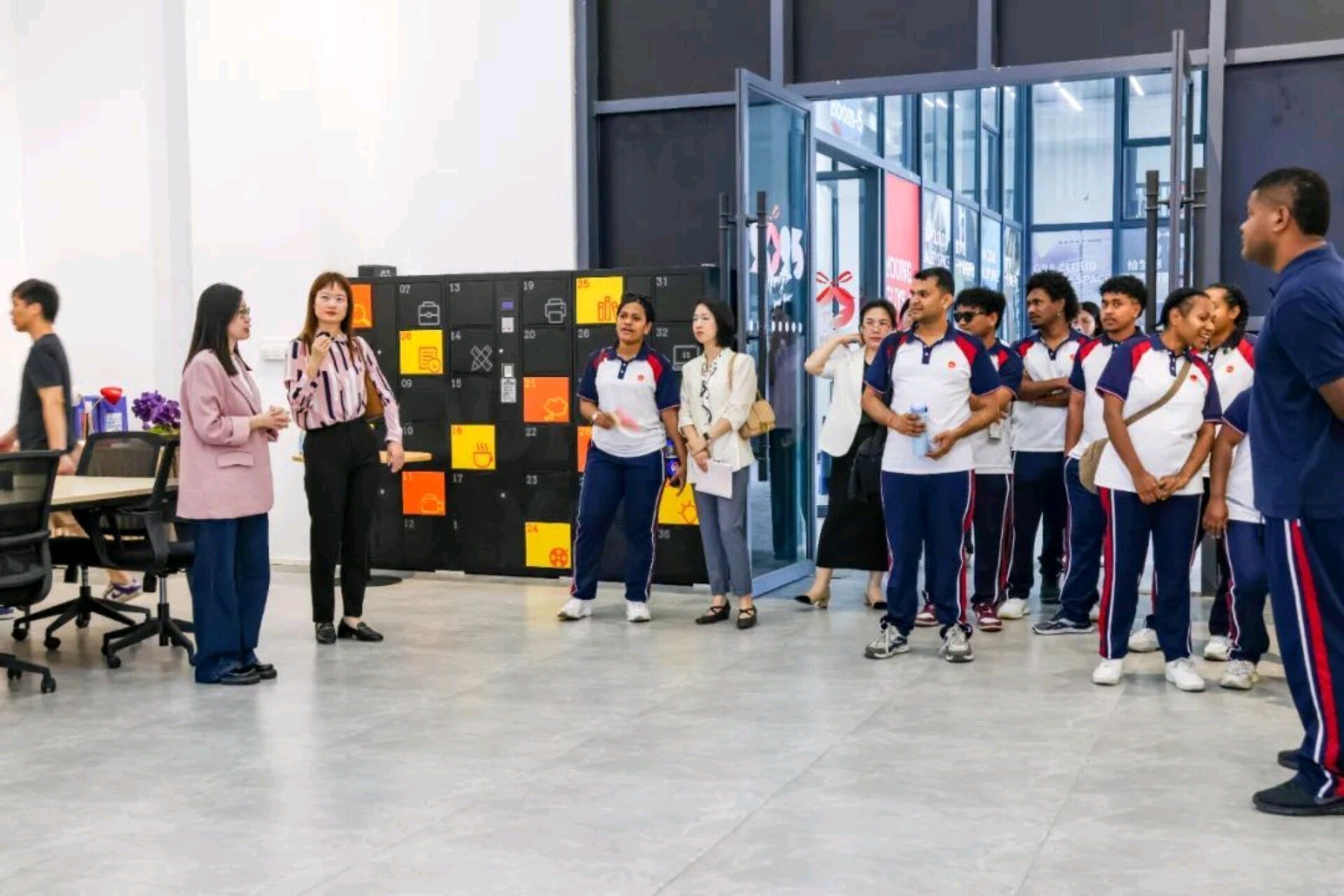
Young international students from Pacific island countries visit Jiangmen's science and technology innovation platform.
Currently, Jiangmen has entered a new stage of development, leveraging its strategic resource advantages to build a national platform for cultural exchange and cooperation, thereby fostering mutual support and win-win cooperation among overseas Chinese both at home and abroad.
Planning | Zhu Weiliang
Coordination | Pan Xiaochen
Reporter | Li Aiying
Editor | Liao Ying (intern), Wei Shen, Huang Qini, James, Shen He
